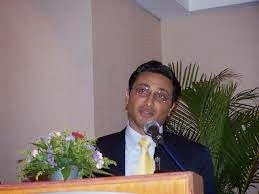19-Mar-2013, Al Jazeera
What lessons can countries like the United States learn from the prosperity of the South?
In the next seven years, Brazil, China and India's combined economic output will surpass that of Canada, France, Germany, Italy, the UK and the US put together.
And by 2030, 80 percent of the world's middle class population will be living in developing countries.
But the United Nations Human Development report, which was released in Mexico last week, says that economic growth alone is not enough to improve lives.
It says sustained progress needs "pro-poor policies and significant investment in people's capabilities." And it points to countries like Brazil and Mexico which have implemented social programmes that have lifted tens of millions out of poverty.
But as many developing countries actively work on reducing poverty and inequity, countries in the northern hemisphere are implementing austerity policies causing millions to suffer.
What can countries like the US learn from the prosperity of the South? And what does help regions like Latin America progress?
Earlier this week, Shihab Rattansi spoke with Khalid Malik, the lead author of the UNDP's 2013 Human Development Report, to examine the rise of the global south. He also talked to Richard Buery, the president of the Children's Aid Society about preventative programmes to help the poor.
Joining Inside Story Americas are guests: Branko Milanovic, the lead economist at the World Bank's Research Department; Sylvia Allegretto, the co-chair of the Center on Wage and Employment Dynamics at the University of California, Barkeley; and Swarnim Wagle, one of the authors of the UNDP's 2013 Human Development Report.
"The Human Development Index (HDI) is a well-rounded measure of development, it tries to capture the quality of life, the livelihoods that people lead, not just through the incomes they earn, but also the kind of lives they have reason to value and choose, and what they are able to do with the capabilities that they have been able to build up. So the notion of Human Development is actually much broader than what we measure in the HDI, so we reduce this broad expansive notion of human development … We sort of look at three keys constituents, the first one is income, it allows you to do many things, is a means to achieving many things that we value in life, second is education, which is a proxy for the kind of knowledge people can access and utilise to enrich their own lives, and the third is health which we measured by life expectancy, how long, how productive lives people can lead."
Swarnim Wagle, one of the authors of the UNDP's 2013 Human Development Report
